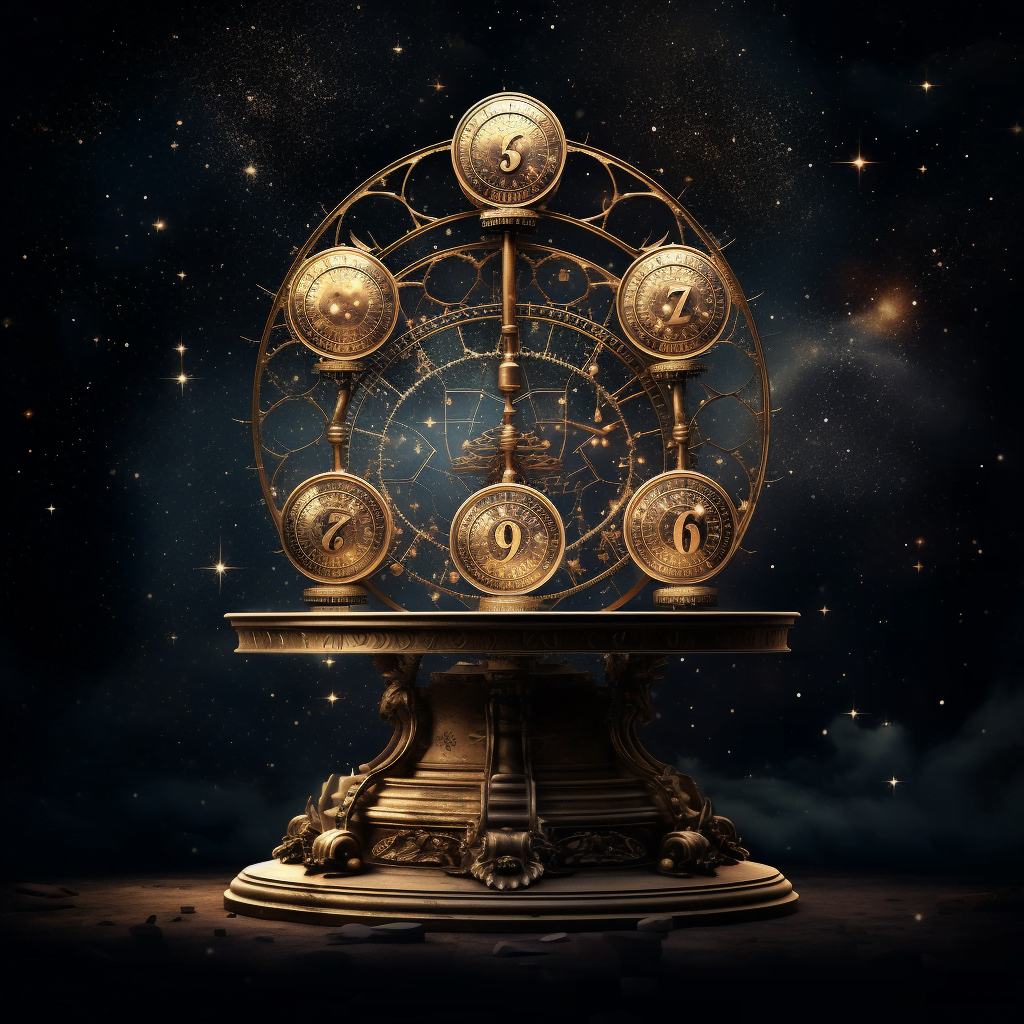In exploring the renowned Swiss psychiatrist Carl Jung’s perspective on astrology, it is paramount to examine the potential influence it had on his psychological theories. With astrology and the zodiac serving as perennial sources of fascination throughout history, one must delve into the depths of Jung’s beliefs and the interplay between this esoteric practice and his groundbreaking work in psychology. As we delve into Jung’s intricate framework, we are left to ponder whether his unique perspective on astrology left an indelible mark on his revolutionary theories, forever shaping the landscape of modern psychological thought.
Background on Carl Jung
Early life and education
Carl Gustav Jung was born on July 26, 1875, in Kesswil, Switzerland. From a young age, he showed a keen interest in the natural sciences and the study of the human mind. In 1895, Jung entered the University of Basel, where he studied medicine. During his medical training, he became increasingly fascinated by psychiatry and psychoanalysis, which were emerging fields at the time.
Development of his psychological theories
After completing his medical degree, Jung worked as an intern at the Burghölzli Psychiatric Hospital in Zurich. It was during this time that he was introduced to Sigmund Freud’s psychoanalytic theories, which had a profound impact on his thinking. In 1907, Jung and Freud met and formed a close professional relationship. However, over time, their differing views on the nature of the unconscious and the role of sexuality in psychological development led to a significant rift between them.
Following his separation from Freud, Jung embarked on a journey of self-exploration, delving into his own dreams and visions. This period of introspection and self-analysis laid the foundation for his groundbreaking psychological theories, which would later shape the field of analytical psychology.
Jung’s Perspective on Astrology
Interest in astrology
Astrology had always held a particular fascination for Jung. He viewed it not as a predictive tool but as a symbolic language that could provide valuable insights into the workings of the human psyche. Throughout his life, Jung maintained an active interest in astrology, integrating it into his theoretical framework and therapeutic practice.
Influence of astrology on his work
Jung’s encounter with astrology left an indelible mark on his psychological theories. He recognized the profound influence that celestial patterns and archetypal symbols have on the human psyche. Jung believed that astrology can be seen as a reflection of the collective unconscious, a concept he coined to describe the universal, shared aspects of human experience and knowledge.
Key Concepts in Jung’s Psychological Theories
Collective unconscious
One of Jung’s central ideas was the concept of the collective unconscious. He argued that this collective level of the psyche contains ancient and universal patterns of human experience, which he called archetypes. The collective unconscious is the repository of shared symbols, myths, and knowledge that are inherited from our ancestors and have a profound impact on our behavior, thoughts, and dreams.
Archetypes
Archetypes are primordial patterns that exist within the collective unconscious and manifest in various forms, such as the mother, the hero, the wise old man, and the shadow. These archetypes are universally recognized and can be found across different cultures and historical periods. Jung believed that archetypes are expressed through symbols and images, which provide insight into the deeper layers of the psyche.
Individuation
Individuation is the lifelong process of becoming a fully integrated and authentic individual. According to Jung, this process involves the integration of conscious and unconscious elements of the psyche, as well as the realization and expression of one’s unique individuality. Individuation requires the exploration of the personal and collective unconscious, confronting and integrating repressed aspects of the self, and striving for wholeness and self-realization.
Shadow
The shadow, another key concept in Jung’s theories, represents the dark and often hidden aspects of our personality that we do not consciously identify with or accept. It encompasses aspects such as our repressed desires, fears, and unresolved conflicts. Jung believed that acknowledging and integrating the shadow is crucial for individuation and psychological growth.
Synchronicity
Synchronicity refers to meaningful coincidences that occur in our lives, seemingly connected by underlying patterns or archetypal themes. Jung proposed that these synchronistic events are not merely random occurrences but are meaningful and purposeful. He believed that synchronicity provides a bridge between the inner and outer worlds, allowing individuals to tap into the deeper layers of the psyche and gain valuable insights.
A Comparison between Astrology and Jung’s Theories
Similarities in symbolic language
Both astrology and Jung’s theories rely on symbols and imagery to convey deeper meanings. Astrology uses celestial bodies and their positions to symbolize archetypal themes and psychological patterns. Similarly, Jungian psychology emphasizes the significance of symbols and archetypes in understanding the human psyche. This shared reliance on symbolic language provides a basis for exploring the connections between astrology and Jung’s theories.
Integration of astrology within analytical psychology
Jungian psychology seeks to incorporate and integrate a wide range of psychological perspectives and traditions. Astrology, with its rich symbolism and archetypal framework, naturally aligns with the core principles of analytical psychology. By integrating astrology, Jung expanded his theoretical framework, allowing for a more comprehensive understanding of the human psyche and its connection to the wider cosmos.
Astrology in Jung’s Analytical Psychology Practice
Use of astrology in therapy
Jung recognized the therapeutic potential of astrology and incorporated it into his analytical practice. He believed that astrology could serve as a valuable tool for self-reflection, providing insights into the deep layers of the psyche and guiding individuals on their path of individuation. By exploring the astrological birth chart, Jung encouraged his clients to gain a deeper understanding of their personal archetypal patterns and psychological dynamics.
Astrological concepts applied in analysis
In his analytical work, Jung employed astrological concepts such as the twelve zodiac signs, planets, and aspects as frameworks for exploring the individual’s personality and life experiences. These astrological elements provided additional layers of understanding and interpretation, offering a more nuanced perspective on the client’s psychological dynamics. By integrating astrology with analytical psychology, Jung aimed to provide a more holistic and comprehensive approach to therapy.
Criticism and Controversy
Skepticism from the scientific community
Jung’s interest in astrology and his integration of astrological concepts within analytical psychology drew criticism from the scientific community. Many scientists and psychologists dismissed astrology as a pseudoscience without empirical evidence or a solid foundation in scientific theory. Consequently, Jung’s association with astrology often led to a diminished perception of his overall credibility among some academic circles.
Critique of astrology’s lack of scientific validity
Critics of astrology argue that its predictions and claims lack scientific validation. They contend that astrology relies on subjective interpretations and generalizations rather than empirical evidence. Skeptics argue that the correlations between celestial movements and human behavior or events are merely coincidental and do not demonstrate a causal relationship. This skepticism surrounding astrology’s scientific validity also extends to Jung’s integration of astrological concepts into analytical psychology.
Psychological Perspectives on Astrology
Psychological interpretations of astrology
Many psychologists and scholars have approached astrology from a psychological perspective, shifting the focus from predictive astrology to its potential as a tool for self-reflection and personal growth. From this viewpoint, astrology is seen as a language of symbols that can provide insights into the unconscious aspects of the self and aid in the process of individuation.
Astrology as a tool for self-reflection
In psychological astrology, the emphasis is not on predicting future events but on using astrological symbols and archetypes to gain a deeper understanding of the self and one’s psychological patterns. Astrology can serve as a catalyst for self-reflection, allowing individuals to explore their unconscious motivations, fears, and desires. By engaging with astrology, individuals can gain insight into their strengths, weaknesses, and areas of personal growth.
Jung’s Influence on Astrological Psychology
Integration of astrology with psychological theory
Jung’s emphasis on the symbolic and archetypal aspects of the human psyche provided a fertile ground for the integration of astrology with psychological theory. Astrological psychology, influenced by Jung’s work, seeks to bridge the gap between astrology and psychology, exploring the psychological dimensions and implications of astrological symbols and concepts.
Astrologers influenced by Jung
Jung’s perspective on astrology has had a profound impact on astrologers and scholars who have sought to explore the psychological dimensions of astrology. Many astrologers have integrated Jung’s concepts, such as the collective unconscious, archetypes, and individuation, into their astrological practice. This integration has expanded the horizons of astrology, allowing for a deeper exploration of the human psyche and its connection to the wider cosmos.
Relevance and Impact of Jung’s Perspective
Legacy of Jung’s ideas
Jung’s perspective on astrology continues to influence the fields of psychology and astrology. His ideas have provided a framework for integrating astrology with psychological theory, leading to new insights and understandings of the human psyche. Jung’s legacy has also sparked ongoing research, dialogue, and debate, exploring the intersections between astrology and psychology and their shared potential for personal growth and self-understanding.
Ongoing research and discourse
The impact of Jung’s perspective on astrology can be seen in the ongoing research and discourse surrounding the psychological dimensions of astrology. Scholars and psychologists continue to explore the potential therapeutic applications of astrology, investigating its effectiveness as a tool for self-reflection, personal growth, and understanding the human psyche. The influence of Jung’s perspective ensures that astrology remains a topic of interest and inquiry within psychological and academic circles.
Conclusion
In conclusion, Carl Jung’s perspective on astrology profoundly influenced his psychological theories. His fascination with astrology, viewed as a symbolic language, permeated his work and expanded his understanding of the human psyche. Jung recognized the value of astrology in therapy, utilizing astrological concepts to deepen self-reflection and aid in the process of individuation. While met with criticism and controversy, Jung’s integration of astrology within analytical psychology has paved the way for the exploration of astrology as a tool for self-understanding and personal growth. With Jung’s ideas continuing to shape the fields of psychology and astrology, the ongoing research and discourse surrounding the connections between astrology and psychology highlight the enduring relevance and impact of his perspective.


